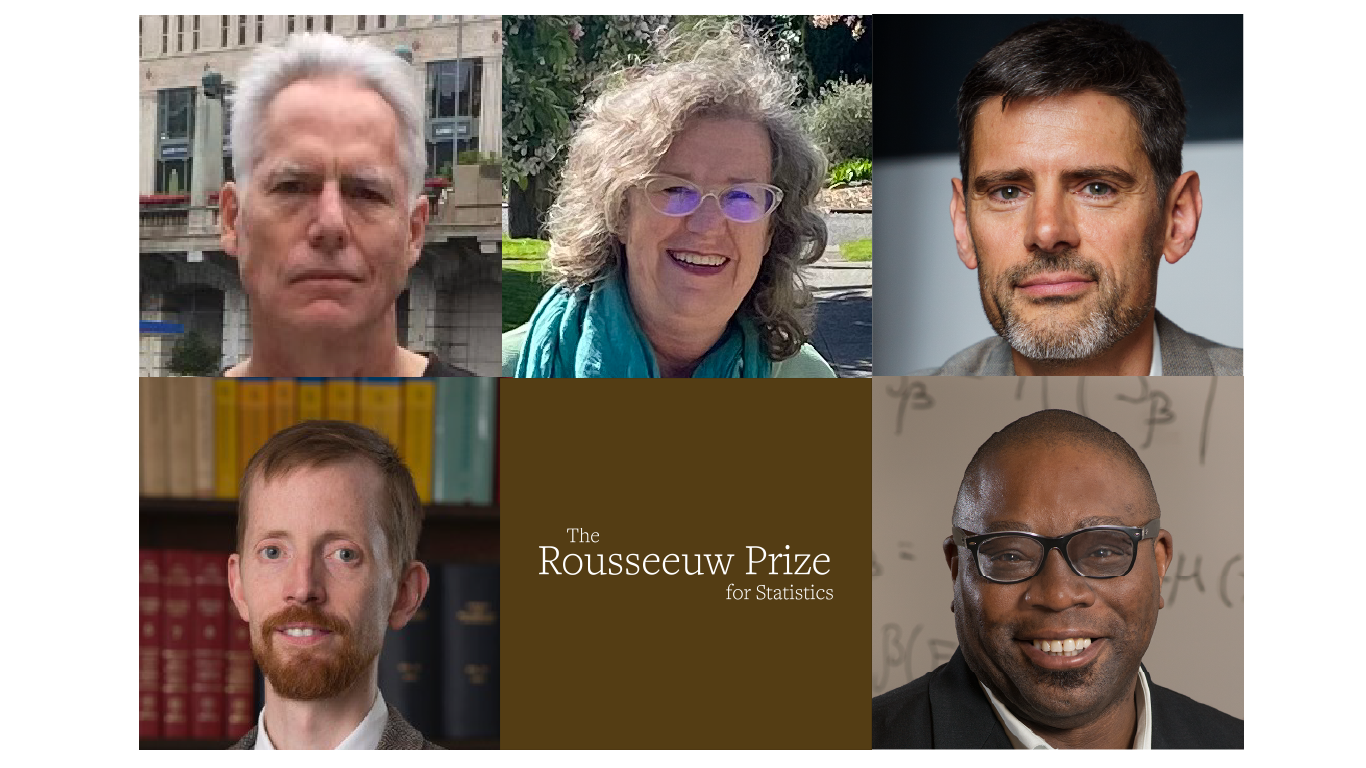
The Rousseeuw Prize for Statistics awarded for the first time
The King Baudouin Foundation has awarded the newly established Rousseeuw Prize for Statistics, worth 1 million dollars, to James Robins, Miguel Hernán, Thomas Richardson, Andrea Rotnitzky, and Eric Tchetgen Tchetgen. The prize will be presented in a ceremony at Leuven University (KU Leuven) on Wednesday 12 October 2022.
This biennial prize, worth 1 million, was established by Peter Rousseeuw, Professor of Statistics at KU Leuven. It aims to reward excellence in statistical research which has a significant impact on everyday life.
Half the prize amount will go to James Robins of Harvard University and half will be shared by Miguel Hernán (Harvard University), Thomas Richardson (University of Washington), Andrea Rotnitzky (Universidad Torcuato di Tella, Argentina) and Eric Tchetgen Tchetgen (University of Pennsylvania). The latter four laureates were either trained or deeply influenced by Robins. They remain his principal collaborators to this day.
The link between jellyfish stings and ice cream
The team is recognised for pioneering research on causal inference with applications in medicine and public health. Causal inference is the process of determining causes and effects. This can be harder than it looks, because several factors can occur together. Take for example the number of jellyfish stings suffered on a given day. This tends to move in line with sales of ice cream. That is known as correlation: on the days with higher ice cream consumption there tend to be more jellyfish stings. The number of jellyfish stings is also correlated with the air temperature, the number of people swimming in the sea, the use of air-conditioning and so on. But these factors are not all causes of jellyfish stings, since eating an ice cream doesn’t give you a jellyfish sting. Swimming in the sea can.
Revolution in statistics
The laureates’ work has provided new insights and statistical methods for addressing central epidemiological questions. For example, what is the effect of a long-term medical treatment? And, if beneficial, what treatment strategies are optimal? The laureates’ work has for instance resulted in guidelines on when to best initiate antiretroviral therapy in people with HIV.
Causal questions like these above are complex to address. Robins showed that it was especially difficult to interpret data from studies that measured exposures or treatments repeatedly over time. This is because there can be feedback mechanisms. In people with HIV, for instance, doctors start antiretroviral treatment in those whose immunity has been compromised by the virus. Therefore, patients who start antiretroviral treatment are on average sicker than patients who do not start treatment. This could give the unfortunate erroneous impression that the treatment is harmful. Then, imagine the treatment does improve a patient’s immune response. This results in a complex feedback system, where immunity affects the treatment the patient receives, which in turn affects future immunity and thus future treatment. Robins solved this methodological problem in a series of ingenious papers, published in the 1980s. He thereby laid the foundations for a long line of methodological innovations by the other laureates, which has helped launch a causal revolution in statistics.
Impact from epidemic to economy
The laureates’ work has had a huge influence on statistical practice in medicine and public health. It has also spread to other fields, such as economics and psychology. In a number of important cases, it has demonstrated that disparities between conclusions drawn from experimental and non-experimental studies are due to the use of older statistical methods that were not suitable. Examples which have had both scientific and societal impact include studies of:
- post-menopausal hormone therapy on coronary heart disease
- statin therapy on cancer
- the benefits of anti-inflammatory therapy for Covid-19 patients
The work honoured by the Rousseeuw Prize has completely transformed the way in which statisticians, epidemiologists, and others infer the effects of interventions, treatments, and exposures to potentially harmful substances. It has greatly improved the overall reliability of causal analysis in medicine and public health, with great benefit to society.
The prize will be awarded at a ceremony taking place at KU Leuven on Wednesday October 12 2022.